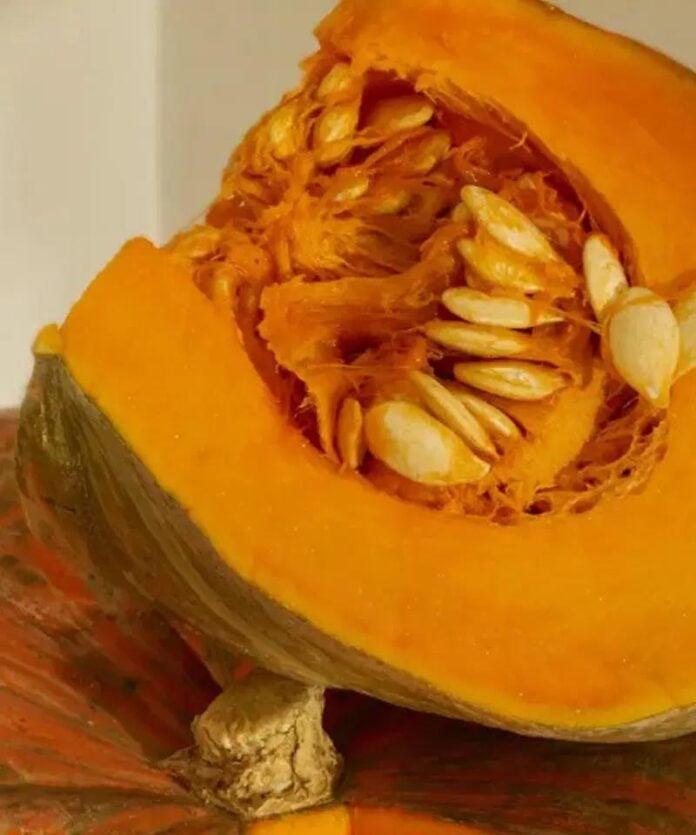As the cool breeze of autumn rolls in and pumpkins begin to appear on porches and in grocery aisles, many of us think of pies, soups, and warm seasonal lattes. But doctors say this familiar fall favorite offers far more than festive charm — it’s one of the most nutrient-rich foods you can add to your diet, particularly for older adults seeking better health and vitality.
Pumpkin, a bright orange member of the winter squash family, is naturally low in calories but loaded with vitamins, minerals, and antioxidants. A staple of North American harvests for centuries, it’s now celebrated worldwide — not just for its taste, but for the impressive health benefits it delivers at every age.
Let’s explore what makes pumpkin such a nutritional powerhouse and why adding more of it to your meals is a simple, delicious way to support your well-being.
1. A Powerhouse of Essential Nutrients
Pumpkin may look humble, but one cup of cooked pumpkin — about 245 grams — packs an extraordinary range of nutrients for very few calories.
That single serving provides:
- Just 49 calories, yet about 78% of your daily vitamin A,
- 13% of vitamin C,
- 25% of copper,
- And generous amounts of potassium, manganese, vitamin E, and fiber.
Because pumpkin is about 94% water, it’s wonderfully light and hydrating. Its deep orange color comes from beta-carotene, a compound your body converts into vitamin A, essential for eye, skin, and immune health.
For older adults who want to nourish their bodies without adding extra calories, pumpkin offers a perfect balance of flavor and nutrition.
2. Rich in Antioxidants That Protect the Body
Our bodies naturally produce molecules called free radicals, which, in excess, can damage healthy cells — a process linked to heart problems, cancer, and aging.
Pumpkins are rich in powerful antioxidants like alpha-carotene, beta-carotene, and beta-cryptoxanthin, all of which help neutralize these harmful molecules. Doctors note that eating foods high in carotenoids can help the body fight inflammation and may even slow the effects of aging on the skin and organs.
3. Supports a Stronger Immune System
For those of us over 60, maintaining a resilient immune system becomes increasingly important. Pumpkin contains several nutrients known to strengthen immunity.
Its high levels of beta-carotene (converted to vitamin A) support the body’s natural defense system, helping it respond effectively to infections. Vitamin C further enhances immune cell function and helps wounds heal faster, while vitamin E, iron, and folate contribute to overall immune balance.
Together, these nutrients make pumpkin a gentle but powerful ally for staying well throughout the year.
4. Promotes Healthy Vision
If your eyes aren’t as sharp as they once were, pumpkin can lend a hand — or rather, a helping scoop.
The same beta-carotene that gives pumpkin its orange hue provides the body with vitamin A, a nutrient vital for eye health. Vitamin A deficiency is one of the most common causes of vision problems, especially in older adults.
Research also suggests that vitamins C and E — both found in pumpkin — may protect delicate eye tissue from damage caused by light and free radicals, reducing the risk of cataracts and age-related vision decline.
5. A Smart Food for Weight Management
Pumpkin’s high water and fiber content make it a surprisingly filling food that supports healthy weight management.
At under 50 calories per cup, it provides bulk without heaviness, helping you feel full longer while taking in fewer calories. Compared to denser starches like potatoes or rice, pumpkin offers a lighter alternative that’s easier on digestion but still satisfying.
For seniors working to maintain or lose weight in a healthy way, pumpkin is an easy addition to meals that doesn’t sacrifice taste or nourishment.
6. Supports Long-Term Cellular Health
Modern lifestyles expose us to oxidative stress — a condition caused by environmental toxins, stress, and unhealthy eating. Over time, this can contribute to chronic illness.
Fortunately, studies have found that people who regularly eat foods rich in carotenoids, such as pumpkin, tend to have lower risks of developing certain diseases. The antioxidants in pumpkin help the body repair and renew itself at the cellular level, promoting overall vitality and resilience.
7. Keeps the Heart Healthy
A strong heart is vital at any age, but it becomes even more important as we get older. Pumpkin’s nutrient profile naturally supports heart health.
It’s a good source of potassium, which helps maintain healthy blood pressure, and fiber, which aids in controlling cholesterol levels. Vitamin C further supports the cardiovascular system by protecting blood vessels from damage.
Together, these nutrients work in harmony to reduce the strain on the heart, supporting long-term health and energy.
8. Helps Maintain Youthful, Healthy Skin
Pumpkin isn’t only good for your heart and eyes — it also benefits your skin.
The carotenoids in pumpkin, especially beta-carotene, act like a natural sunscreen from within. These pigments circulate through the body and help shield skin cells from UV damage, promoting a smoother, healthier complexion.
Meanwhile, vitamin C encourages the production of collagen, the protein responsible for keeping skin firm and elastic. Combined with vitamin E, lutein, and zeaxanthin, pumpkin becomes a simple, natural way to support glowing, resilient skin.
9. Gentle on Digestion and Helpful for Weight Control
Because it’s both low in calories and rich in fiber, pumpkin keeps the digestive system functioning smoothly. Fiber aids in healthy digestion, supports regularity, and helps maintain stable blood sugar levels — all important factors for older adults.
The combination of water, fiber, and nutrients makes pumpkin one of the best foods for maintaining a healthy weight and supporting digestive comfort.
Simple Ways to Add Pumpkin to Your Meals
Pumpkin’s mild, naturally sweet flavor makes it one of the most versatile foods in the kitchen. You can enjoy it in both savory and sweet dishes — from hearty soups and roasted vegetables to pancakes, muffins, or even a comforting bowl of oatmeal.
To prepare a fresh pumpkin, slice it open carefully, remove the seeds, and roast the flesh in the oven until soft. The seeds themselves are edible and full of healthy fats, magnesium, and zinc. You can roast them for a crunchy snack or sprinkle them over salads.
If you prefer convenience, canned pumpkin is a great option — just check that the label says 100% pure pumpkin with no added sugar or flavorings.
Pumpkin blends beautifully with cinnamon, nutmeg, or a hint of ginger, making it an easy ingredient to use in soups, stews, smoothies, or desserts. A simple drizzle of olive oil, a sprinkle of pepper, and a few roasted cubes of pumpkin can turn an ordinary meal into something nourishing and comforting.
The Takeaway
Adding pumpkin to your diet isn’t just a seasonal treat — it’s a lasting investment in your health. From supporting your heart and immune system to promoting healthy skin and vision, this vibrant winter squash offers benefits that reach far beyond the dinner table.
So, the next time you see pumpkins at the market, remember: behind that bright orange skin lies one of nature’s most generous gifts — delicious, affordable, and full of life-giving nutrients.
Whether enjoyed in a warm soup or baked into a wholesome pie, pumpkin reminds us that eating well can also be a source of comfort, joy, and care for the body at every age.



